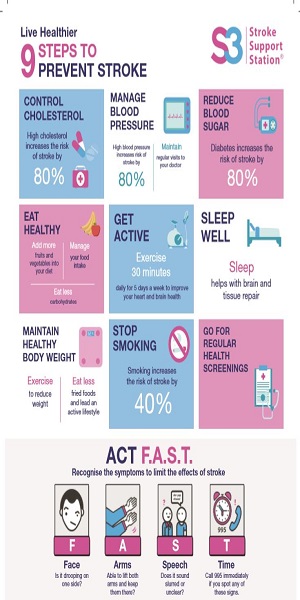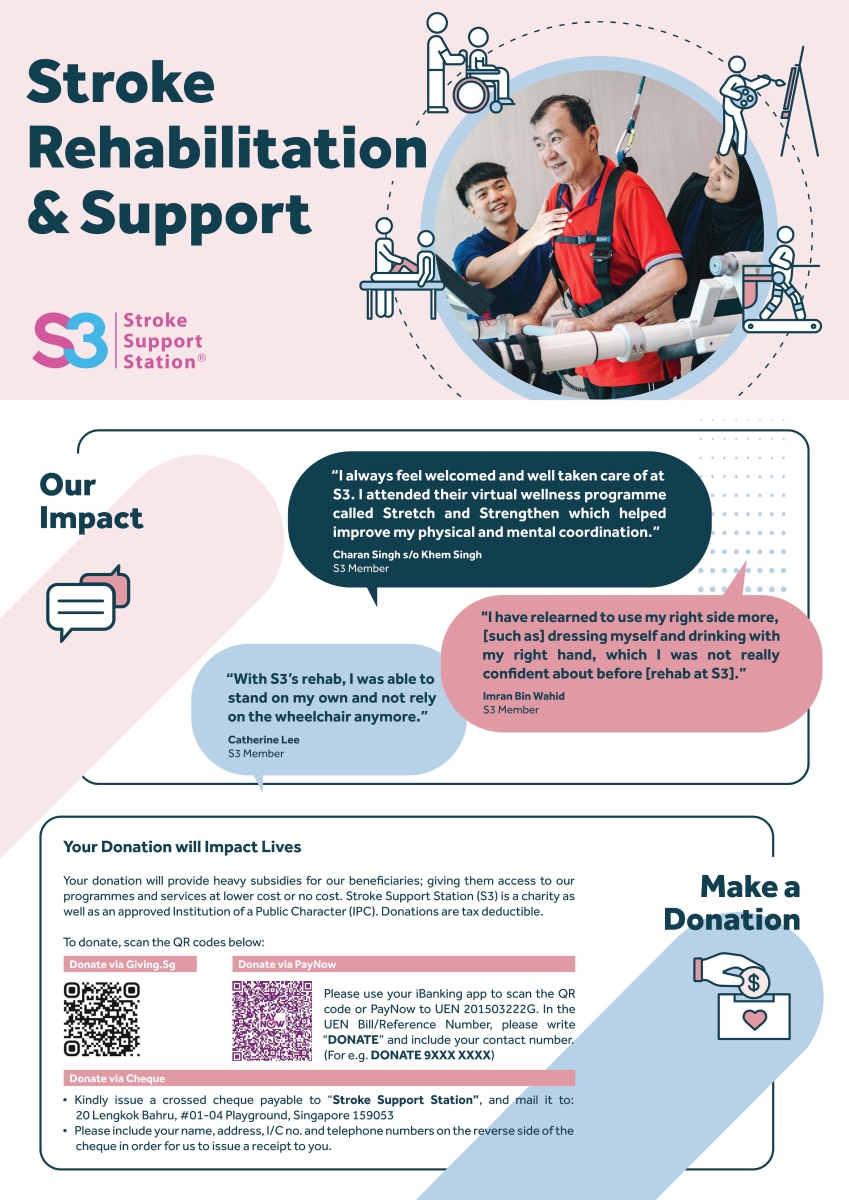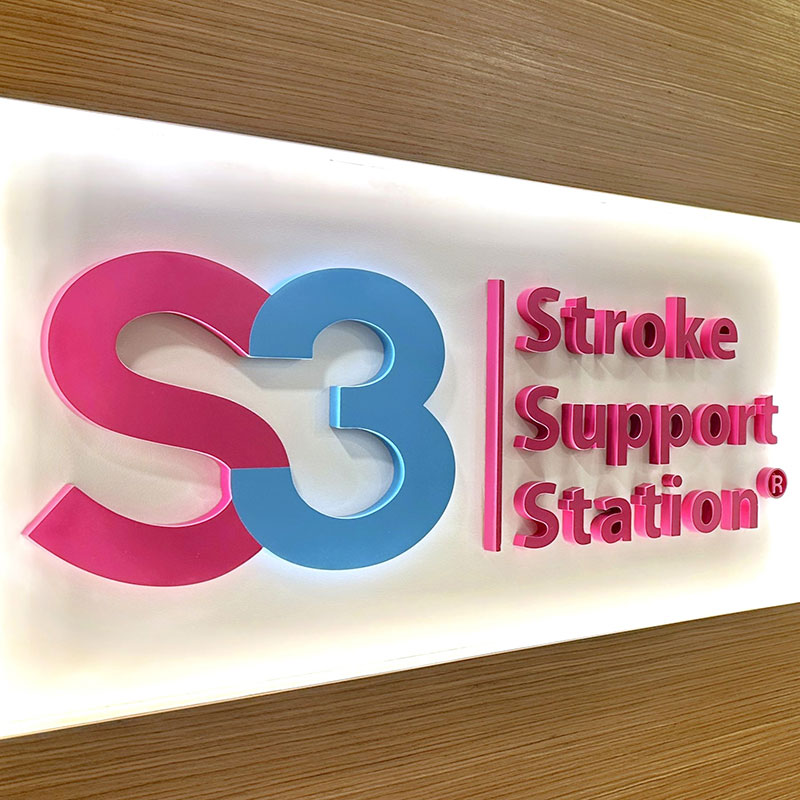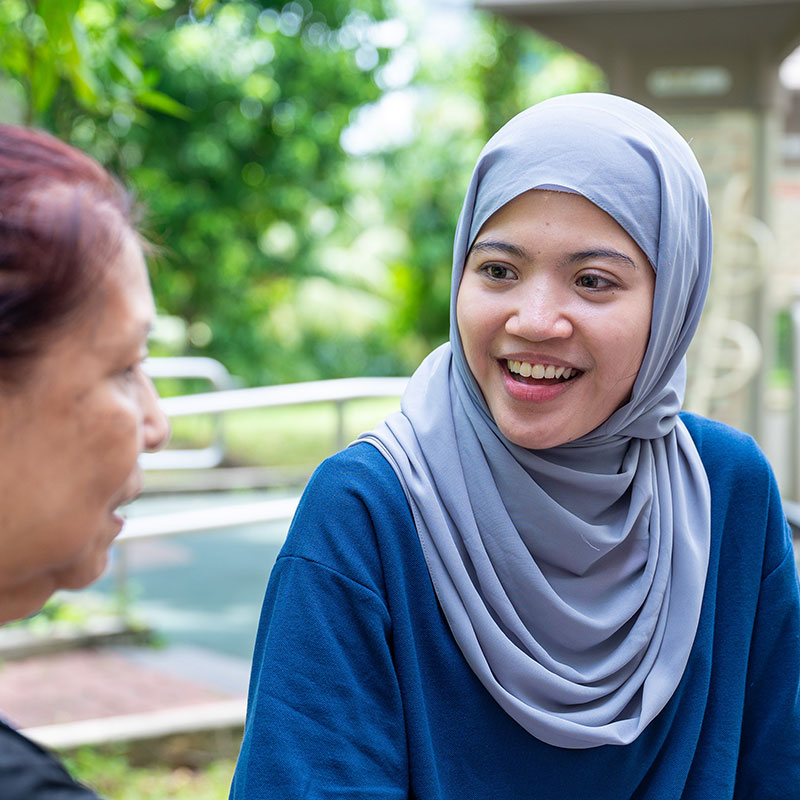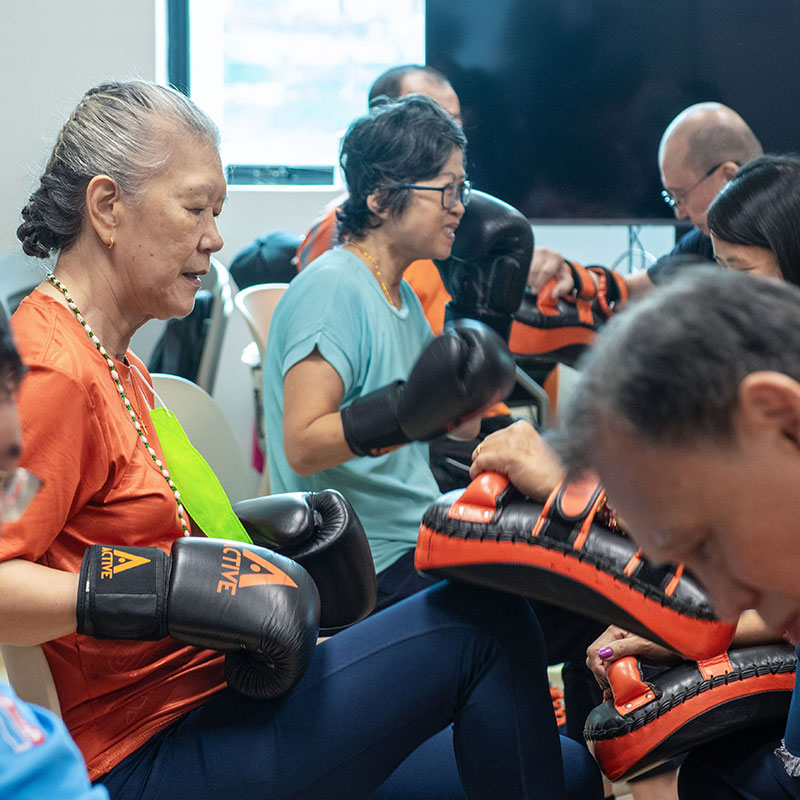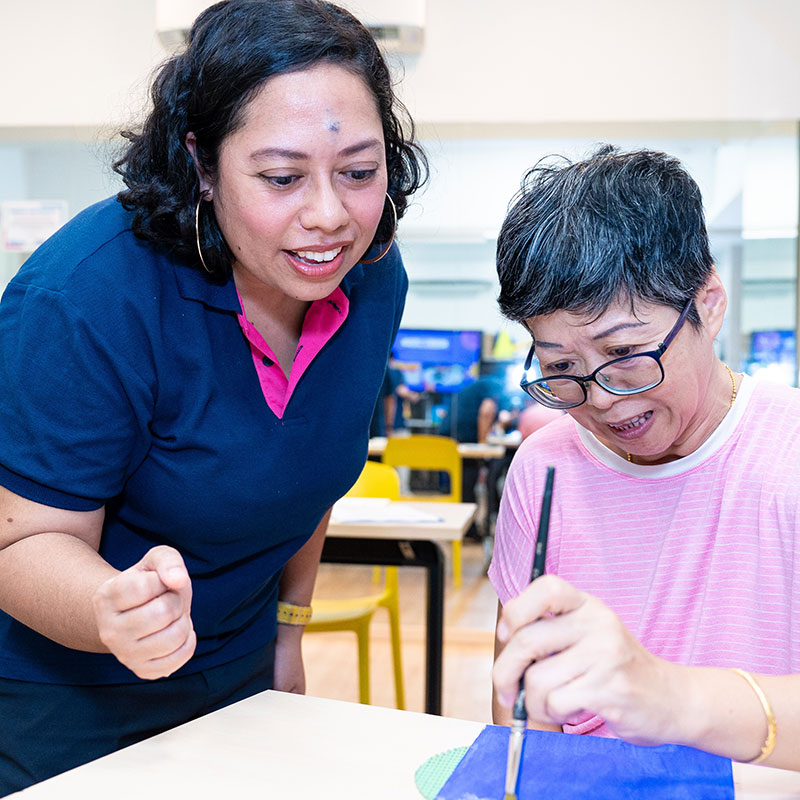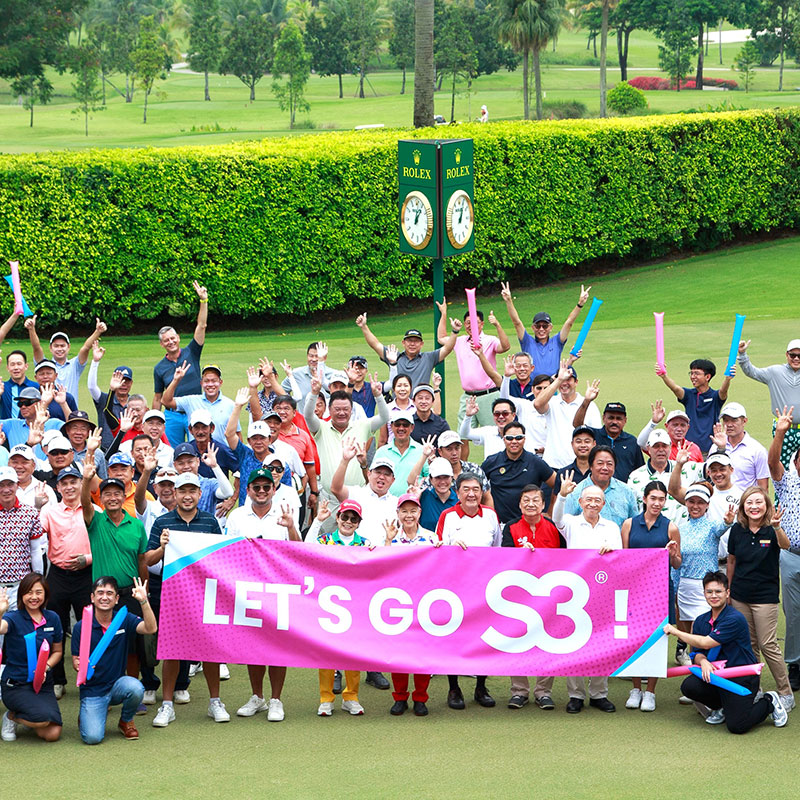Stroke Support
What is Stroke?
Stroke is a common yet serious medical condition. According to the World Health Organisation, about 15 million people suffer a stroke worldwide every year. You may have heard about stroke from reading books, surfing the internet or watching the television. Many of us here may have a close encounter or experience with stroke. Be it a stroke survivor or a caregiver, the stories we know about stroke are often painful and difficult.

Stroke occurs when the blood supply to our brain is blocked, preventing oxygen from reaching our brain cells. A stroke is mostly caused by clots in our blood vessels. When our brain cells die due to a lack of oxygen, we lose many physical and cognitive functions, even resulting in death.
There are two main types of stroke: ischemic and haemorrhagic
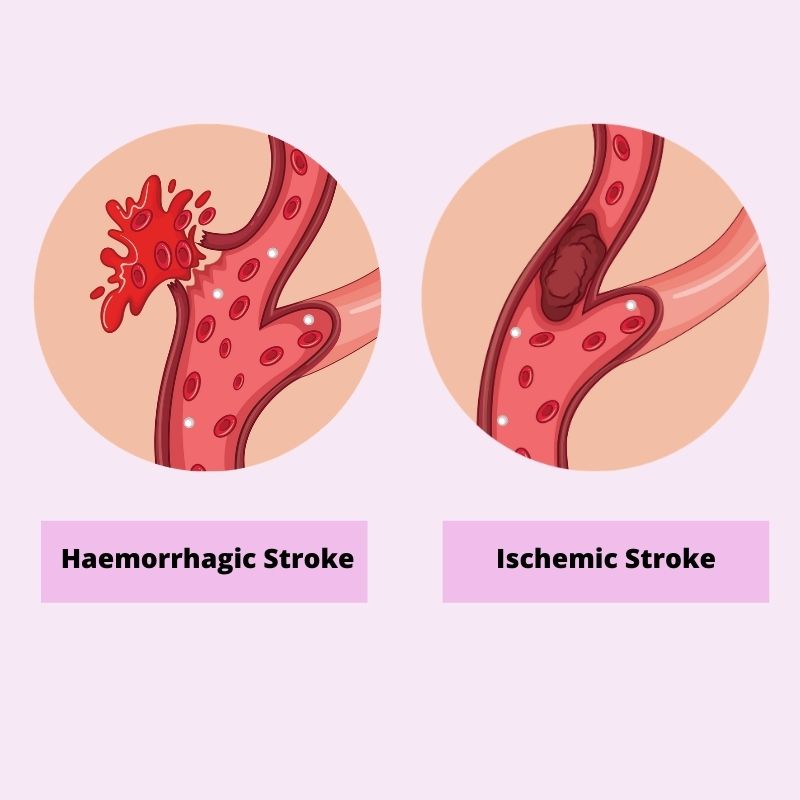
Ischemic stroke happens when an artery that supplies blood to the brain is blocked, reducing blood flow and oxygen to the brain which cause brain cells to die. Haemorrhagic stroke occurs when a blood vessel burst and bleeds into our brain. The pressure inside our brain increases which kills our brain cells.
Warning Signs of Stroke
-
Sudden numbness or weakness in our face, arms or legs, especially on one side of our body,
-
Sudden confusion, having trouble to speak or understanding speech
-
Sudden difficulty seeing
-
Sudden dizziness, fainting and loss of coordination
-
Sudden severe headaches.
If you suspect yourself or someone else who is suffering a stroke. Call an ambulance immediately.
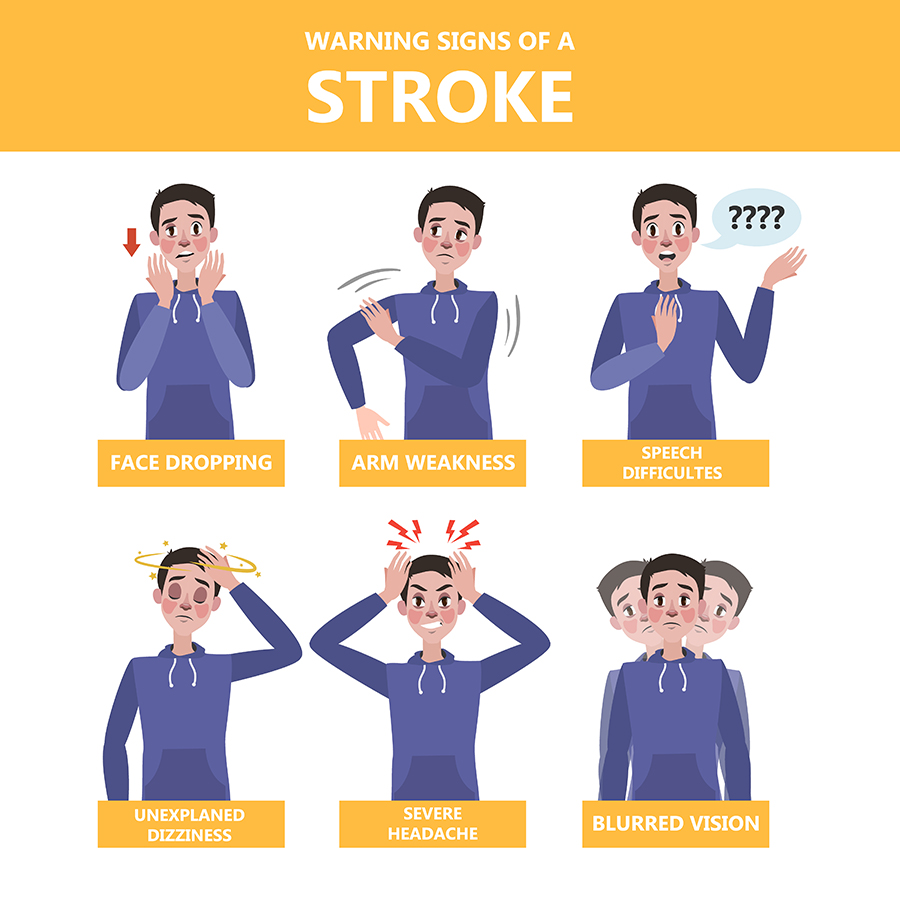
Stroke Risk Factors
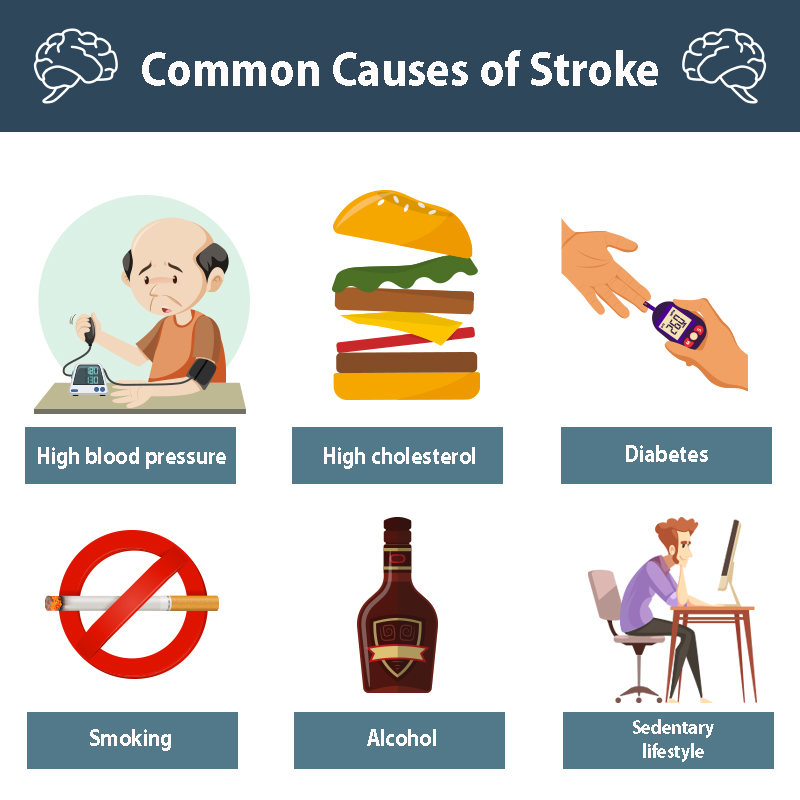
The common causes of stroke are:
High blood pressure:
High blood pressure weakens our blood vessels, making it easier for blood clots to form.
High cholesterol and obesity:
Fat deposits clog our blood vessels, preventing blood flow to our brain.
Diabetes:
High sugar level in our blood stiffens our blood vessels and thickens our blood, making it difficult for our blood to flow to our brain.
Smoking:
Smoking deposits plaque in our blood vessels, thickening and narrowing them. It also raises fat content in our blood and makes it sticky which blocks blood flow to our brain.
Alcohol:
Too much alcohol damages the liver and prevents it from producing blood clotting substances. This increases the risk of bleeding in the brain.
Lack of exercise:
A sedentary lifestyle raises other risk factors of stroke such as high blood pressure and obesity.
Genetics:
Genetic disorders such as CADASIL and sickle cell anemia narrow blood vessels and affect blood flow respectively, resulting in a stroke. Some genetic disorders also make one prone to suffering risk factors such as high blood pressure.
Stroke Prevention
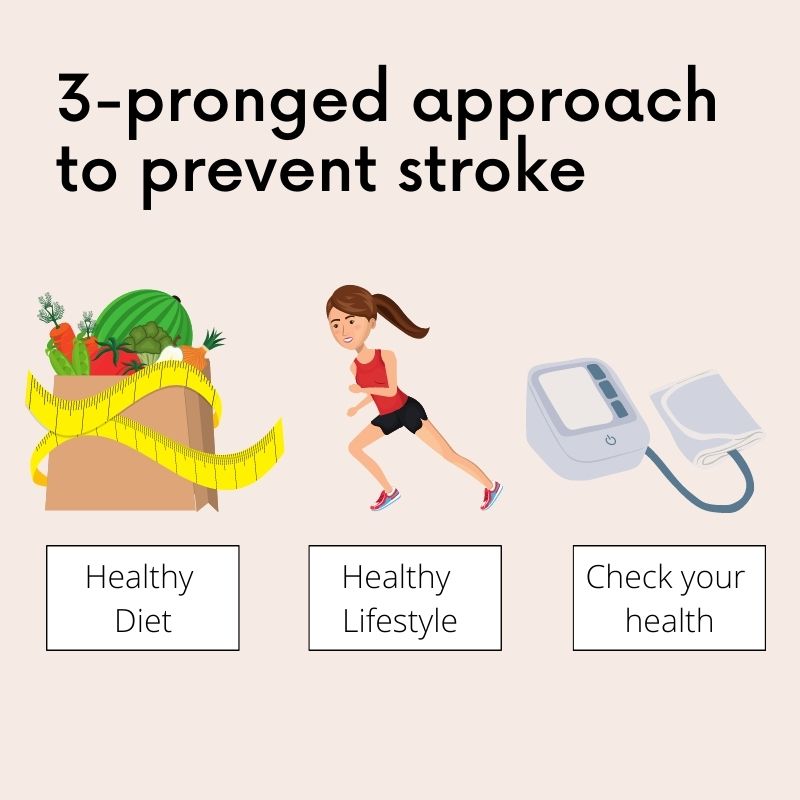
Have a healthy diet:
A diet low on fats and sugar helps to reduce the risk factors of stroke.
Lead a healthy lifestyle:
Exercise, sleep well, stop smoking and drinking…These lifestyle changes maintain good cardiovascular health and the overall functions of other organs which prevents a stroke.
Monitor your health regularly:
Visit your doctor and attend health checkups regularly. These check-ups are important as they help you to detect health problems fast so that you can control them more effectively. If you are suffering from risk factors of stroke such as high blood pressure and high cholesterol, do remember to take your medications on time.
Stroke Recovery
After a stroke, most patients suffer from physical, cognitive, emotional, and social disabilities.
Rehabilitation is key to a stroke survivor’s recovery. Quality therapy programmes help stroke survivors to improve their strength, mobility, and cognitive abilities. Through therapy, stroke survivors develop new skills and learn new tools, enabling them to regain their functions.
Anger, sadness, helplessness… these are some negative emotions that stroke survivors and caregivers face. Counselling and case management services help them to relieve their emotional burdens and cope with the challenges of a stroke.
Our programmes and services help stroke survivors to recover well. Check them out here.
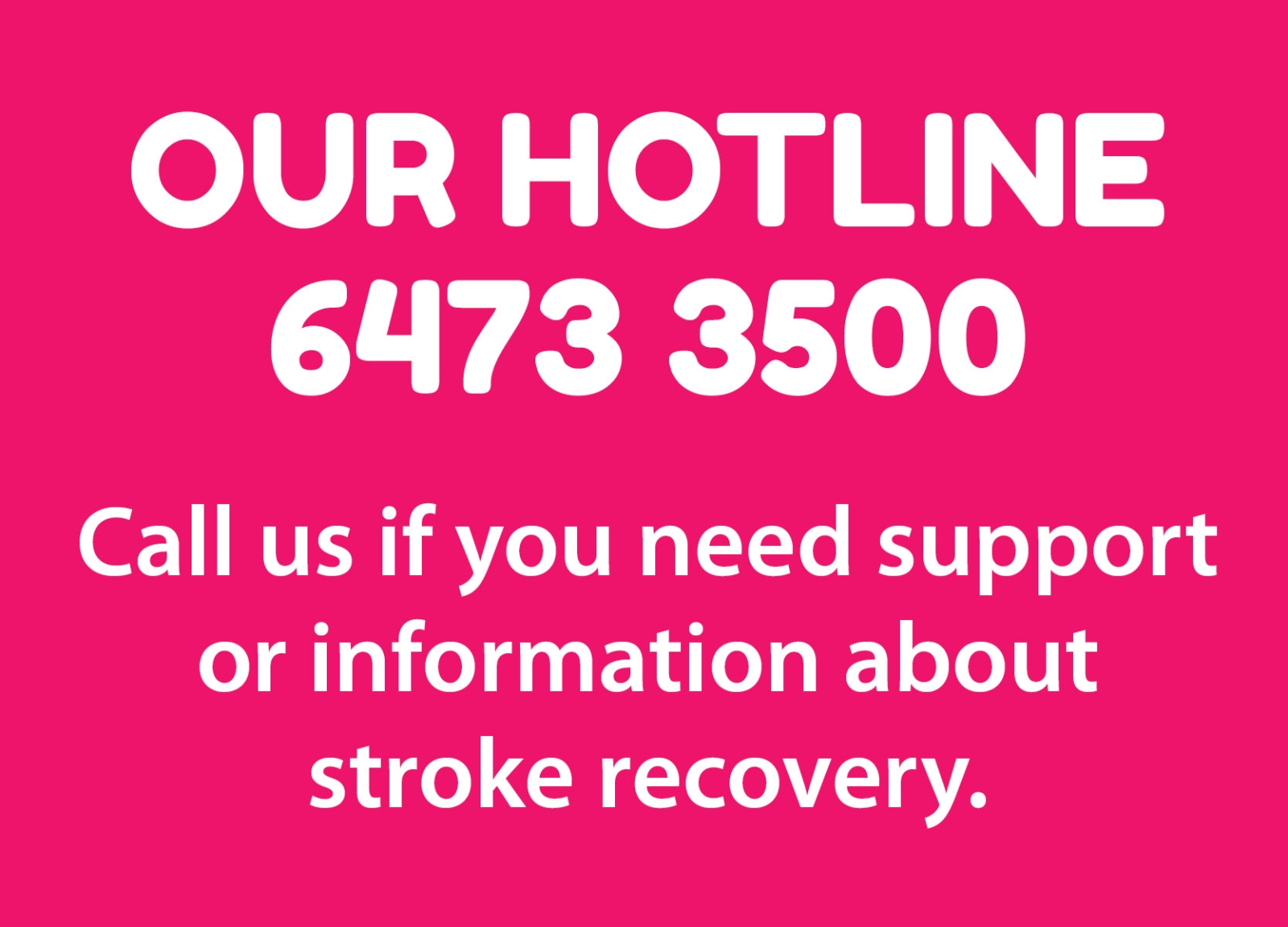
Downloads

